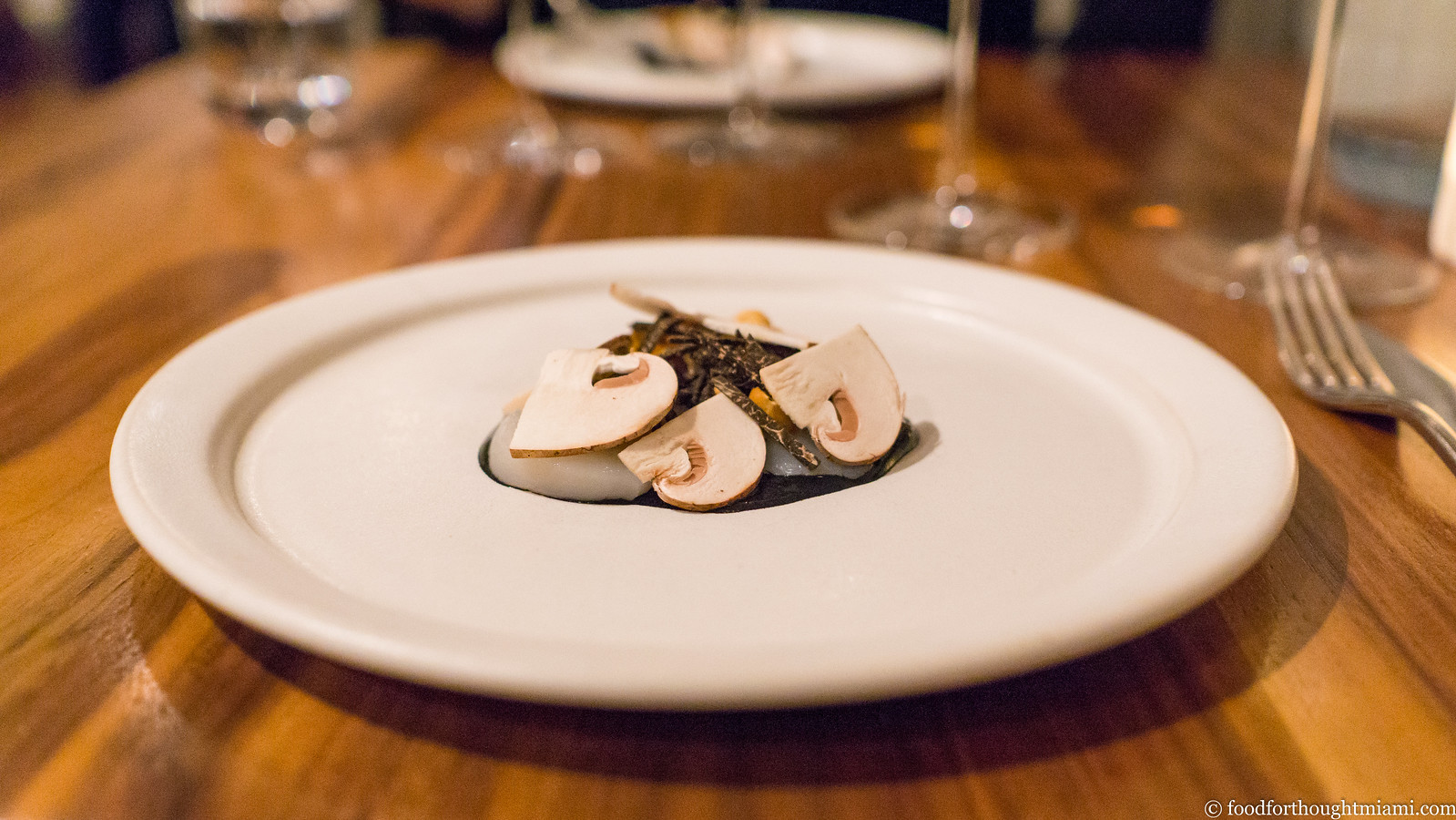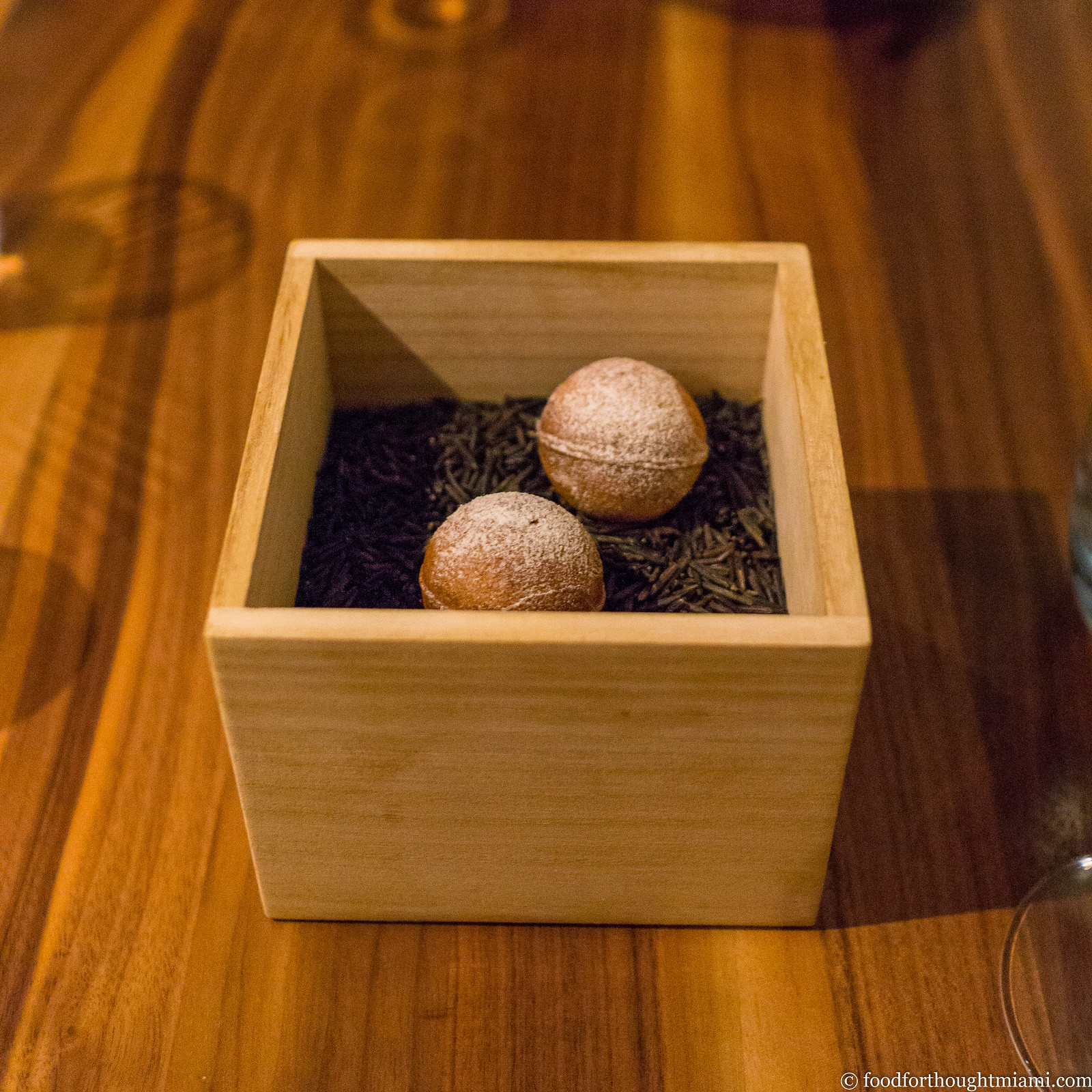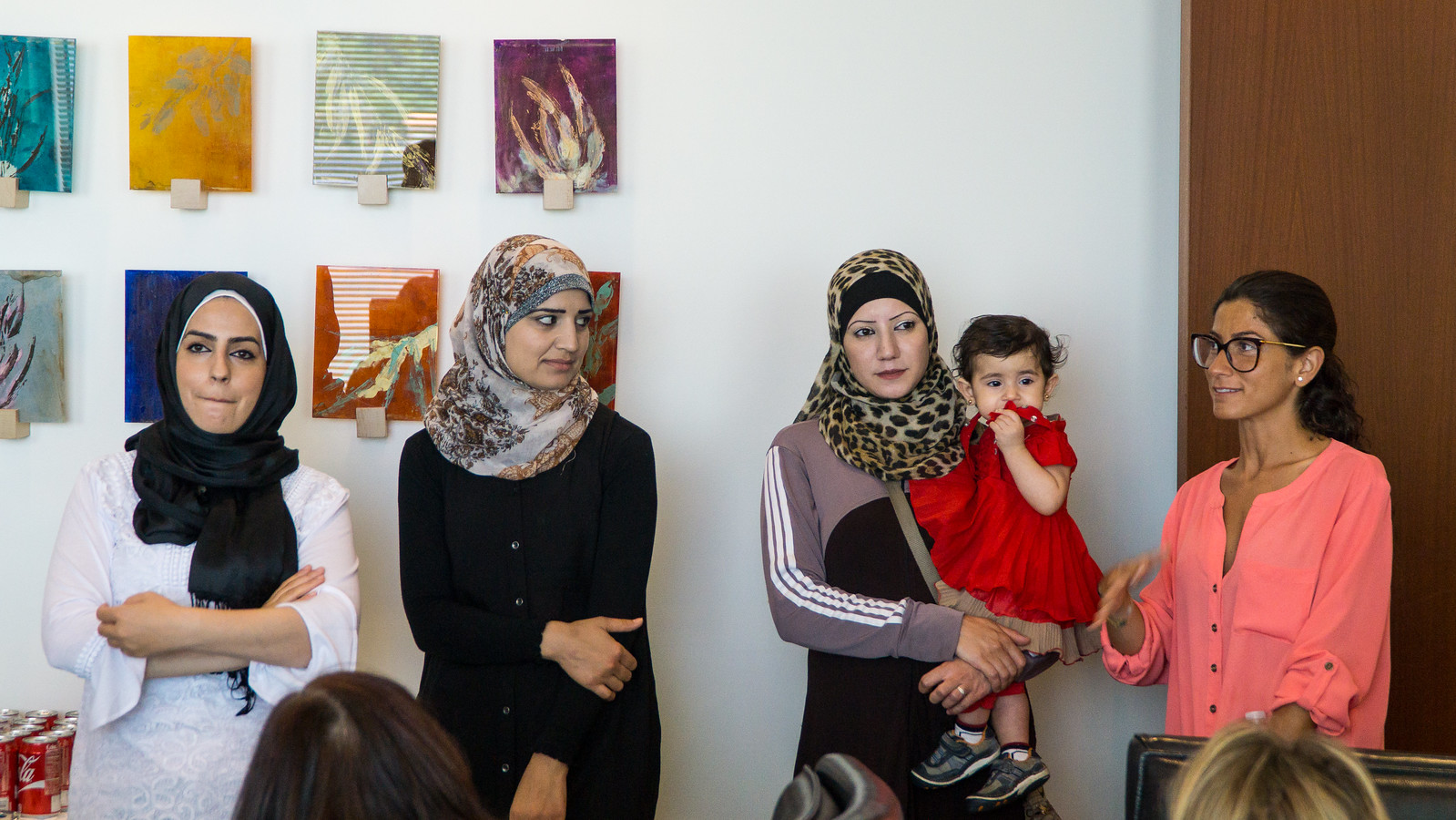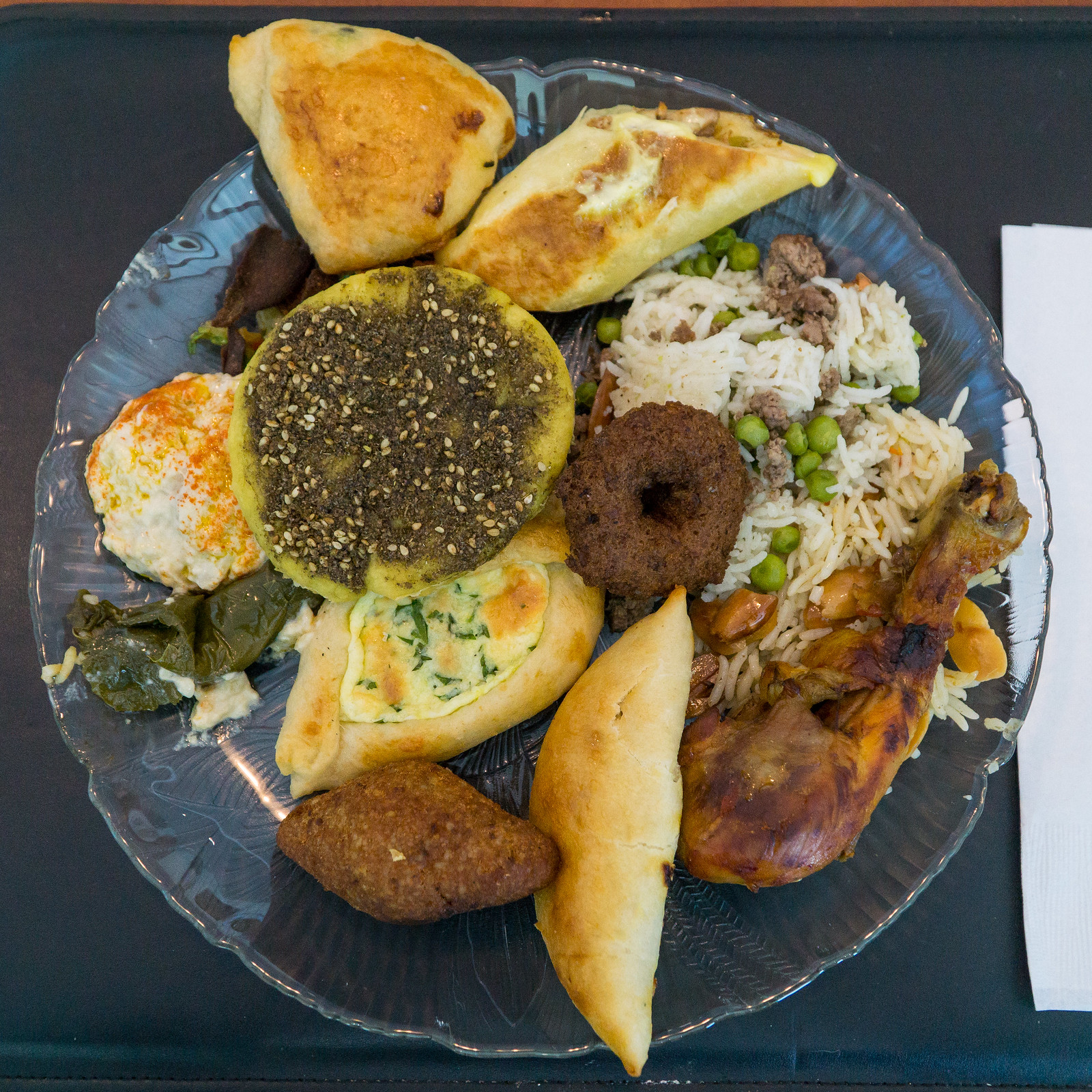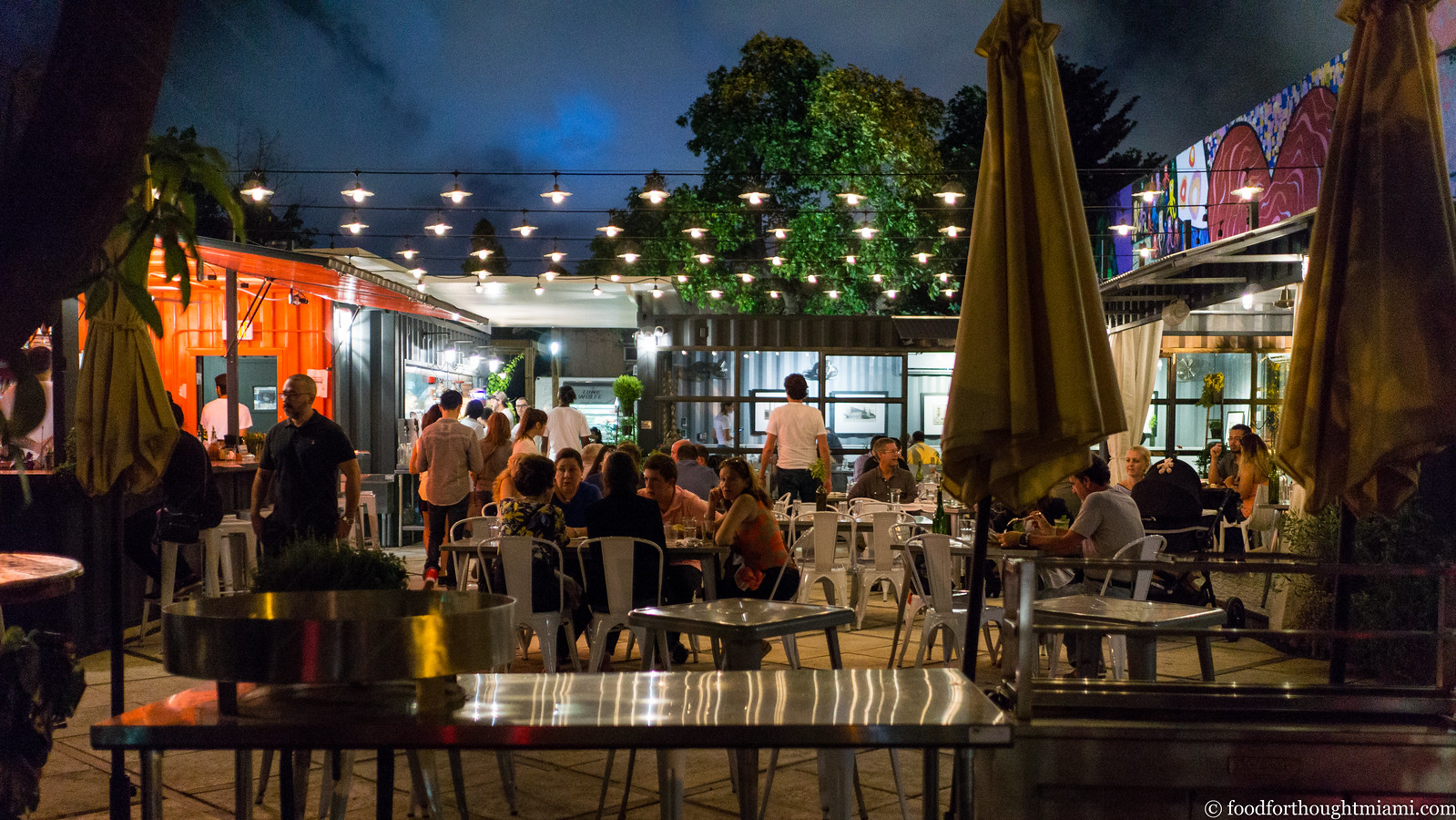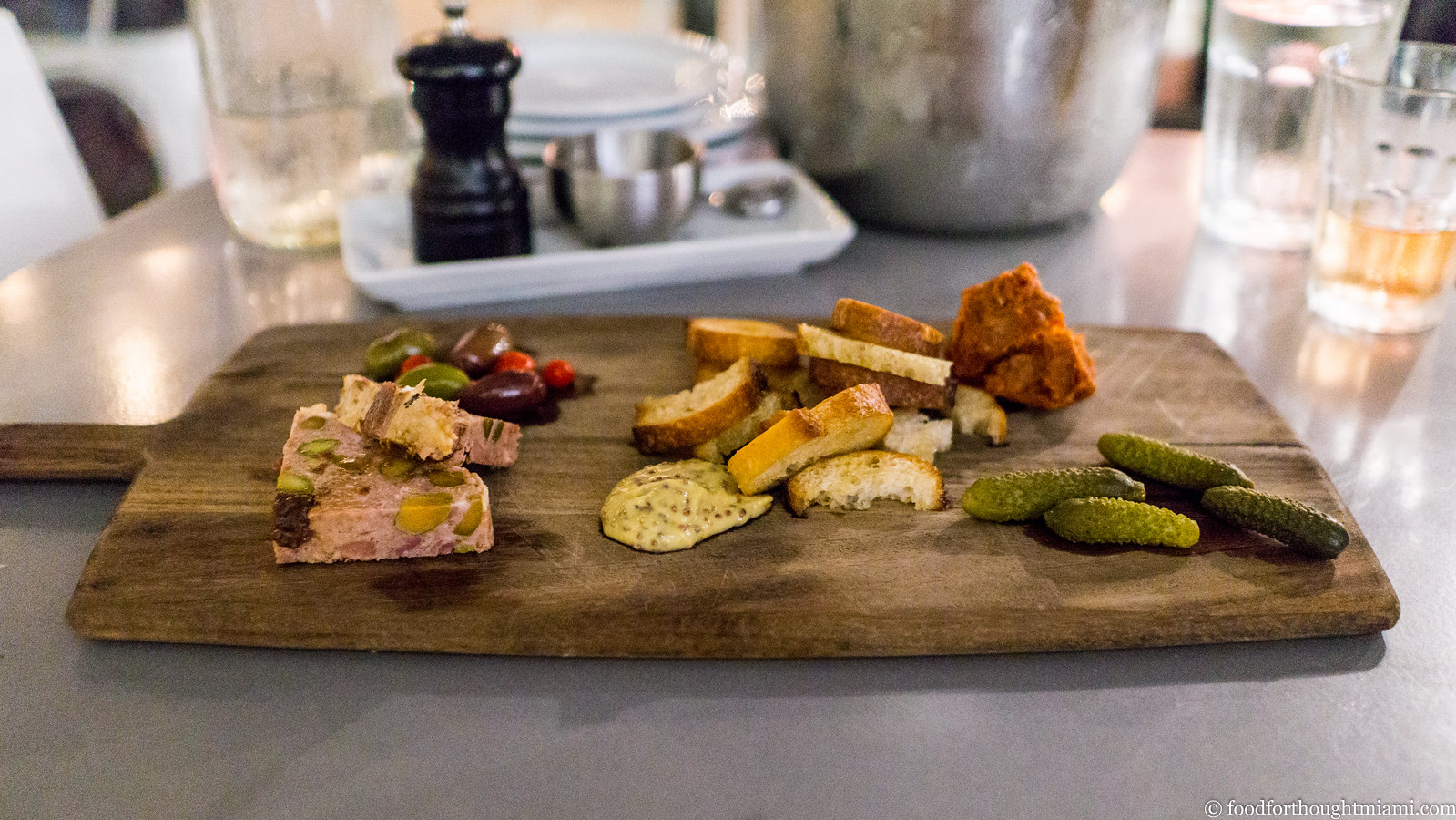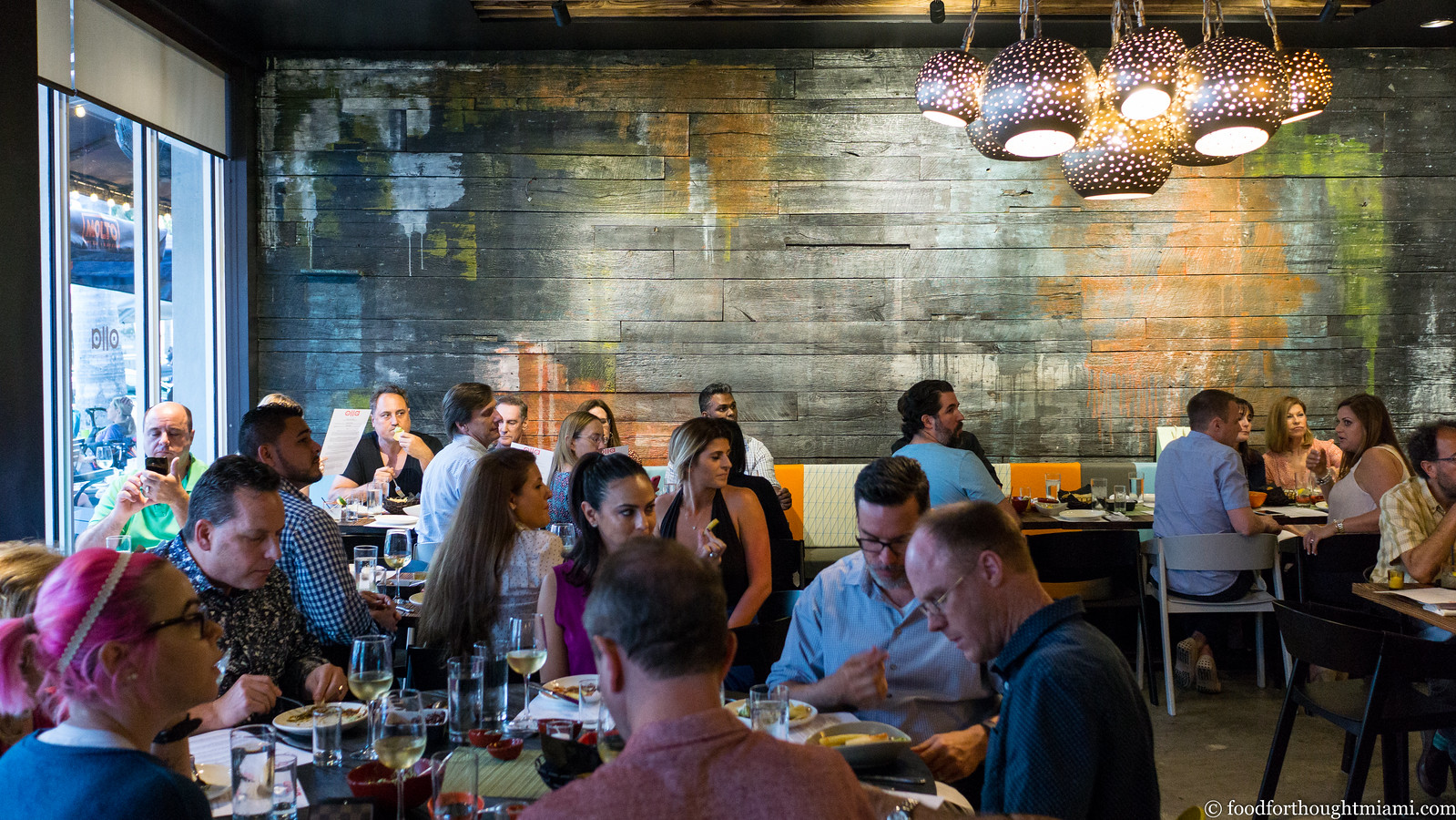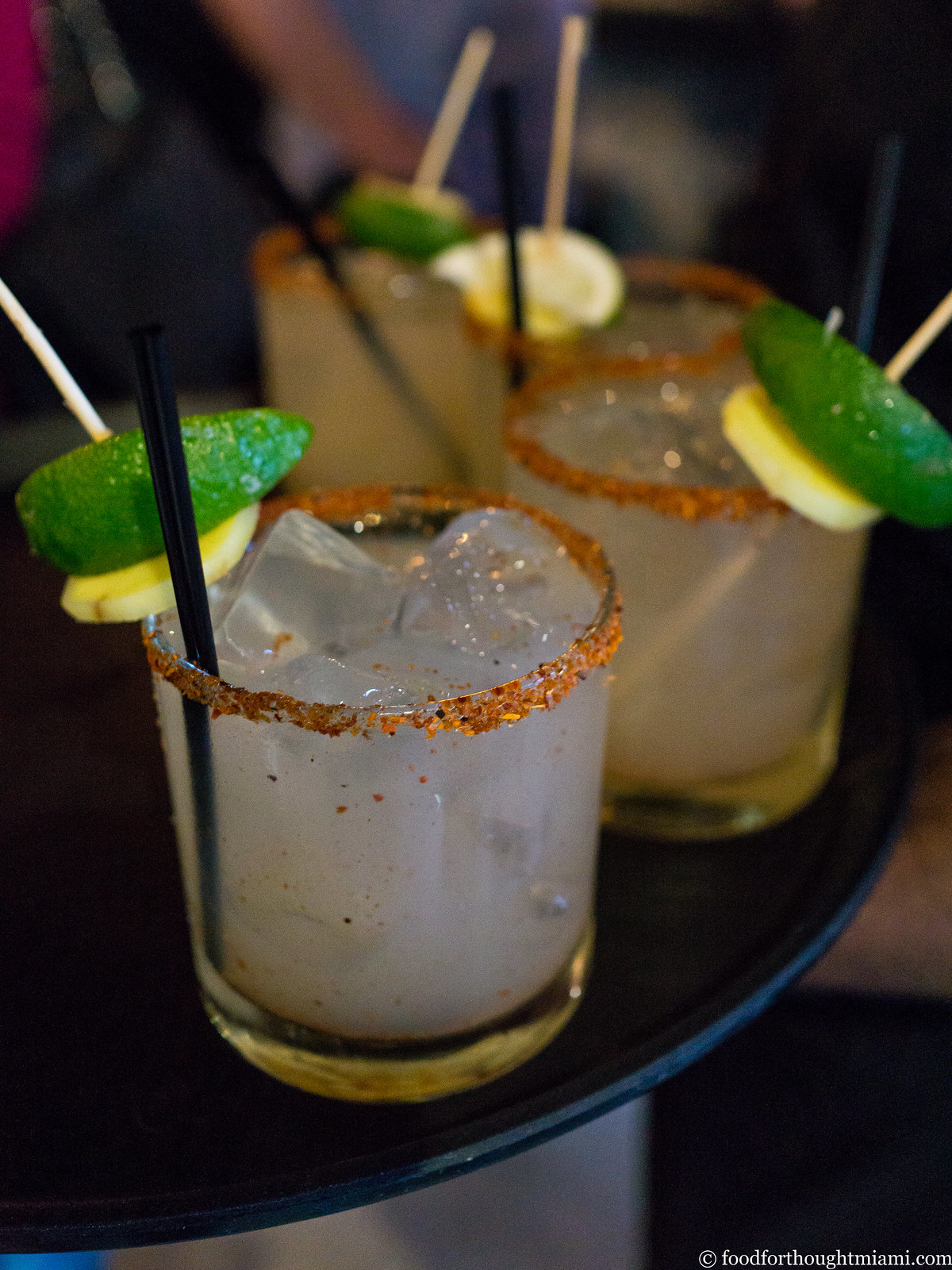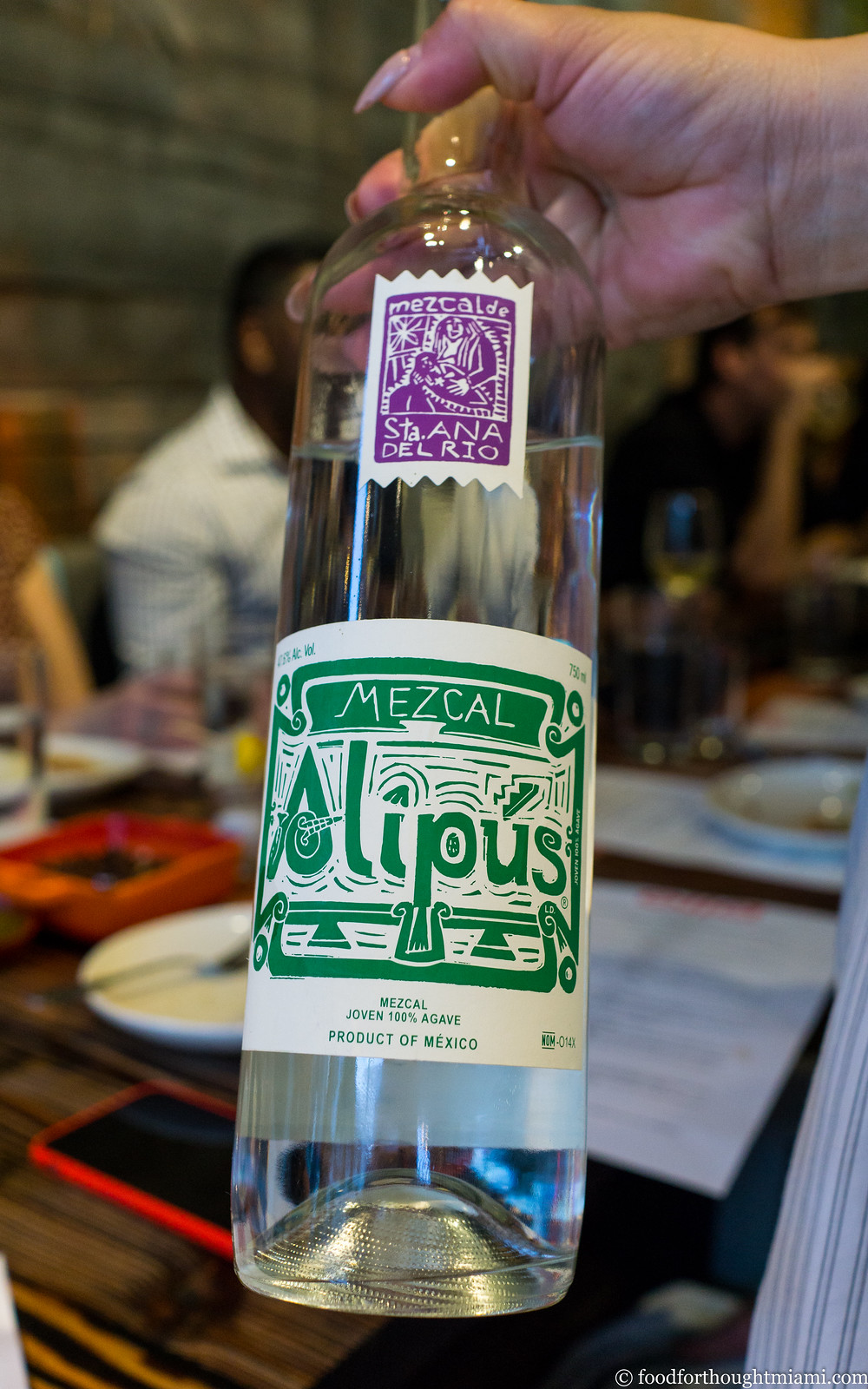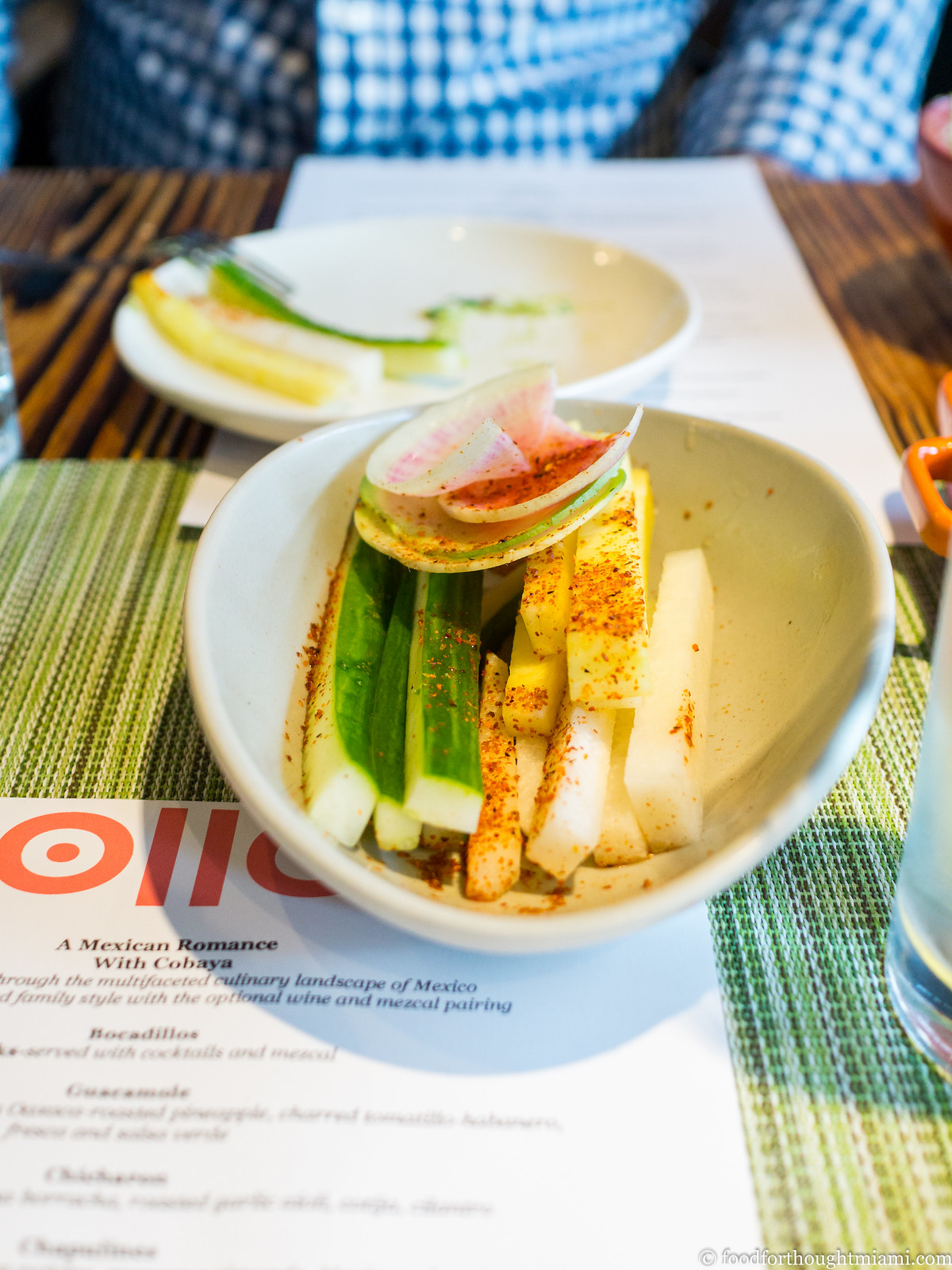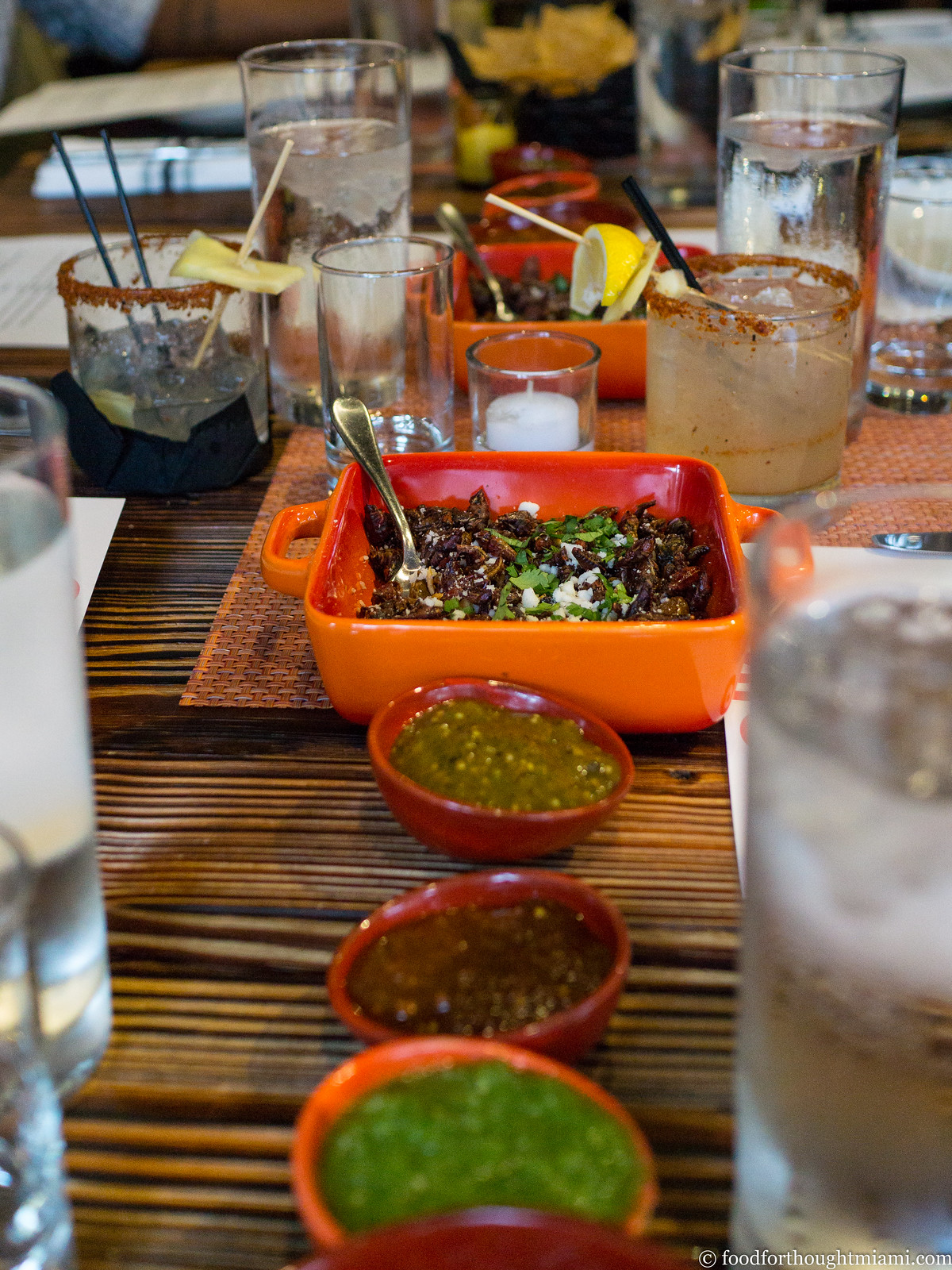Sunday, June 11, 2017
The Clove Club | London
We only had three nights in London on this last trip, our first visit in a decade, but I think our dinner choices – Rules, St. John, and on our final night, The Clove Club – successfully captured a meaningful cross-section. Each of these places might seem quite different on the surface – the red velvet banquettes and gold-framed portraits of Rules are entirely unlike the abbatoir-like black-and-white starkness of St. John, which is equally unlike the cool modernism of the Clove Club. Though the spare, contemporary plates at Clove Club might appear to be from a different world than the straightforward, traditional dishes at Rules, there's a thread which runs through them: a deeply ingrained dedication to British ingredients.
The Clove Club, which started as a living room supper club run by chef Isaac McHale, has made itself a home in a 150-year old building that used to be the Shoreditch Town Hall. Now, you enter into a smart, cozy bar – where, it should be noted, several smaller dishes from the tasting menu are available on an a la carte basis, something I'll be keeping in mind the next time in town. You pass from the bar into an equally smart dining room, the centerpiece of which is a shiny open kitchen. Sometimes these layouts feel like a stage, where the diners are meant to gaze in rapt wonder upon the chefs. This one feels more like the loft of your tasteful London friend, the one with a fetish for blue subway tile and 1960's Scandinavian furniture. It's elegant, in an understated way; but more important, it's comfortable – it still feels like it could be a living room supper club, though in a pretty fancy living room.
Dinner can be either a five-course affair, currently priced at £75, or a more elaborate tasting menu for £110, which was the route we chose.
(You can see all my pictures in this The Clove Club - London flickr set; these are from a meal in February 2017).
The meal starts with a series of snacks, the first of which is something of a signature dish: buttermilk-marinated fried chicken, dusted with pine salt, and presented nestled in a woven basket filled with pine branches. It is like the platonic ideal of a chicken nugget. A glass of Gusbourne Blanc de Blanc accompanies the snacks, and I'm pleasantly surprised to discover that very respectable sparkling wine is coming from this side of the English Channel, in West Sussex.
McHale turns his sights to his native Scotland next with a warm haggis bun, the funk of offal tempered by warm spices and a dusting of vinegar powder. Local ingredients take a Japanese turn with a rectangular laver (seaweed)[1] crisp that serves as the vehicle for a rich, oily mackerel tartare.
(continued ...)
Saturday, June 3, 2017
South Florida Syrian Supper Club Lunch
Some local women have found a unique way to help. Shortly after President Trump signed an executive order implementing his Muslim ban, Kate Cruz was moved to action. Although she was already active in a non-profit (an organization called Project Motherpath that supports childbirth and parenting programs), her work until then had nothing to do with the Syrian refugee crisis. Still, she cold-called a local mosque in Miami Gardens and asked if there was anything she could do. They connected her with the Muslim Women's Organization of South Florida, and together they organized a "South Florida Syrian Supper Club."
It's a wonderful idea: a rotating group of Syrian women refugees prepare meals of traditional dishes in people's houses, typically for $50 per person, with the proceeds going to support the women and their families. In addition to sharing their food, they also share their stories – of what brought them here and what they've faced since arriving.
One of my work colleagues recently hosted a lunch at our office for thirty people, and it was a moving experience. Faten, Raja and Mona – with their children in tow – brought enough food to feed about three times as many people, Krista (herself a Syrian refugee) helped translate for them, Kate, along with Yasemin Saib and Sahar Shaikh of MWO, shared some more stories of what they're faced with and other ways people can help, and everyone ate incredibly well.
(You can see all the pictures in this Syrian Supper @ KTT flickr set)
This would have been worthwhile even if the food was lousy, but it was a pretty incredible feast. Some of it was familiar – kibbe balls with ground meat encased in a crisp bulgur wheat shell, smoky, creamy baba ganoush, tender grape leaves stuffed with rice, herbaceous tabbouli salad and fattoush salad garnished with toasted pita shards. Other dishes were new to me – chicken legs roasted with warm spices, served over rice studded with whole almonds toasted to a golden brown, an assortment of puffy pies filled with meat, or cheese, or generously dusted with za'atar spice. And still others had familiar names but were still different in their ways: falafel shaped like little doughnuts, chicken shawarma wrapped in thin, almost crepe-like bread, spiked with a tart green pickle and dolloped with a creamy, garlicky sauce.
(continued ...)
Monday, May 1, 2017
first thoughts: Charcoal Garden Bar + Grill | Wynwood (Miami)
Ken Lyon is something of a grizzled veteran of the Miami dining world, one with a knack for spotting valuable restaurant real estate. He was way ahead of the curve when he opened Lyon Freres, a Franco-philic market and cafe, on Lincoln Road in the early 1990's, well before the tourists thronged and the rents skyrocketed.[1] More than a decade later, he was also one of the early pioneers of the then-sleepy Design District: in 2008, he opened Fratelli Lyon, an Italian restaurant, in the space which is now home to MC Kitchen. His jump into the Design District came not very far behind Michael's Genuine, which just celebrated its tenth anniversary.
Though Lyon's been around for a while, his latest project – Charcoal Garden Bar + Grill – is very much on-trend. It's in Wynwood. It's built entirely out of semi-portable shipping containers. And everything is cooked using a Josper charcoal grill/oven, the new favorite toy of chefs who like to play with live fire.
This time, Lyon may be a bit more of a trend-chaser than trend-setter. Wynwood has already been one of Miami's hottest restaurant neighborhoods of the past few years, elbowing its way in among South Beach and Brickell. The Josper has already made its way like wildfire (sorry) into Miami kitchens, being the theme of Deme Lomas' new Arson and a touted feature of Klima, Coya and Lightkeepers too. And while Charcoal pitches itself as the first full-service restaurant assembled from shipping containers in the U.S., I think there's at least one already in Washington DC plus a whole Container Park in Las Vegas with multiple restaurants; and of course locally, gastroPod was doing the shipping container thing two years ago, though not as a full-service restaurant.
But none of that takes away from something more important: Charcoal's a really nice restaurant. (You can see all my pictures in this Charcoal Garden Bar + Grill flickr set).
As you enter Charcoal, which occupies a corner of the Wynwood Yard multi-purpose space,[2] a cluster of containers forms a courtyard around an open patio which provides most of the seating. A cut-out container on one side offers some cover when the sun's out, while a double-wide along the back is also air-conditioned. There's a full bar to one side, behind which lies the kitchen.
The limited space and equipment of the kitchen gives the menu its focus. Starters are mostly things which require no cooking: cheeses, charcuterie, smoked fish, raw oysters. For the rest of the meal, an assortment of animals and vegetables are simply grilled or roasted using the Josper. Many of the fish and meats come from Florida waters and farms, including cuts from a whole lamb or pig brought in each week and butchered at their nearby commissary. Some of the vegetables come from an on-site garden, installed by my CSA farmer, Little River Cooperative (though probably not much these days, as the growing season is starting to peter out). You can then combine these with a choice from more than a dozen condiments, listed on a punch card. Ask nicely and you can sample more than one.
We started with some of that charcuterie. Most of it is bought-in, but one item – a pork and duck liver terrine – is made in-house. And it was very good, richly flavored but not overly heavy, and generously studded with pistachios and prunes. We coupled it with some 'nduja Americana from La Quercia, which makes a great version of the soft, spicy, smoky pork spread. There's also a really nice selection of cheeses, including some personal favorites – Point Reyes Blue, Cypress Grove Humboldt Fog, Vella Jack, Jasper Hill Harbison – which you can either order on their own or, for a small upcharge, add to the house salad which accompanies each main.
(continued ...)
Wednesday, April 26, 2017
Cobaya Olla with Chef Scott Linquist
Mexican cuisine is one of several that gets saddled with the "soft bigotry of low expectations." The common perception is that it's all chips and salsa and guacamole, tacos and burritos and fajitas, with maybe some tequila shots, mariachi bands and sombreros mixed in for good measure. In fact, it's an incredibly complex and varied cuisine, which is finally starting to get the attention it deserves in the U.S.: witness the success of Enrique Olvera's Cosme in New York, or Alex Stupak's Empellon, or places like Taco Maria and Broken Spanish in L.A., or Californios and Cala in San Francisco, or Rick Bayless' restaurant empire, plus new Chicago places like Dos Urban Cantina and Mi Tocaya. I could keep going; but instead, let me bring this back home.
Because someone is trying to help Miami catch up. At Olla, Chef Scott Linquist's new restaurant on the west end of Lincoln Road, you'll find a menu that goes well beyond the customary tropes, ambitious both in its pursuit of the authentic flavors of Mexico and in finding modern ways of presenting them. My first visit to was in December, only a week after they'd opened, and I was pretty excited by what I found. Not much later, we started to work on putting together a Cobaya dinner, which came to fruition last week.
(You can see all my pictures from the dinner in this Cobaya Olla with Chef Scott Linquist flickr set).
Everyone was welcomed with a house cocktail – a variation on the flavors of a Moscow Mule, which they dubbed the "Oaxacan Burro," featuring Alipus mezcal, a ginger and epazote shrub, a slug of ginger beer and a squeeze of lime. This was prelude to a mezcal sampling courtesy of XXI Wine and Spirits, a distributor for Alipus, which poured three different "single village" offerings. I'm becoming a real fan of mezcal, which is almost exclusively a craft, small-production product, and which can show a fascinating variety of styles and flavors – some with a clean, almost sake-like purity, others floral, or fruity, or grassy, or smoky, or all of the above.
Once our group of fifty was seated (we took over the restaurant for the night), dinner started with a round of bocadillos, or snacks.
Yes, chips and salsa. But not just any garden variety salsa: four different salsas, starting with a basic salsa fresca, and also including a fresh, raw salsa verde (with some bright, fragrant mint in addition to the usual cilantro), a deeper-flavored, charred tomatillo and habañero salsa verde, and a hearty, red brick hued version with pasilla Oaxaca chiles[1] and roasted pineapple. Plus guacamole, because yes, everyone loves guacamole.
(continued ...)
Subscribe to:
Posts (Atom)

